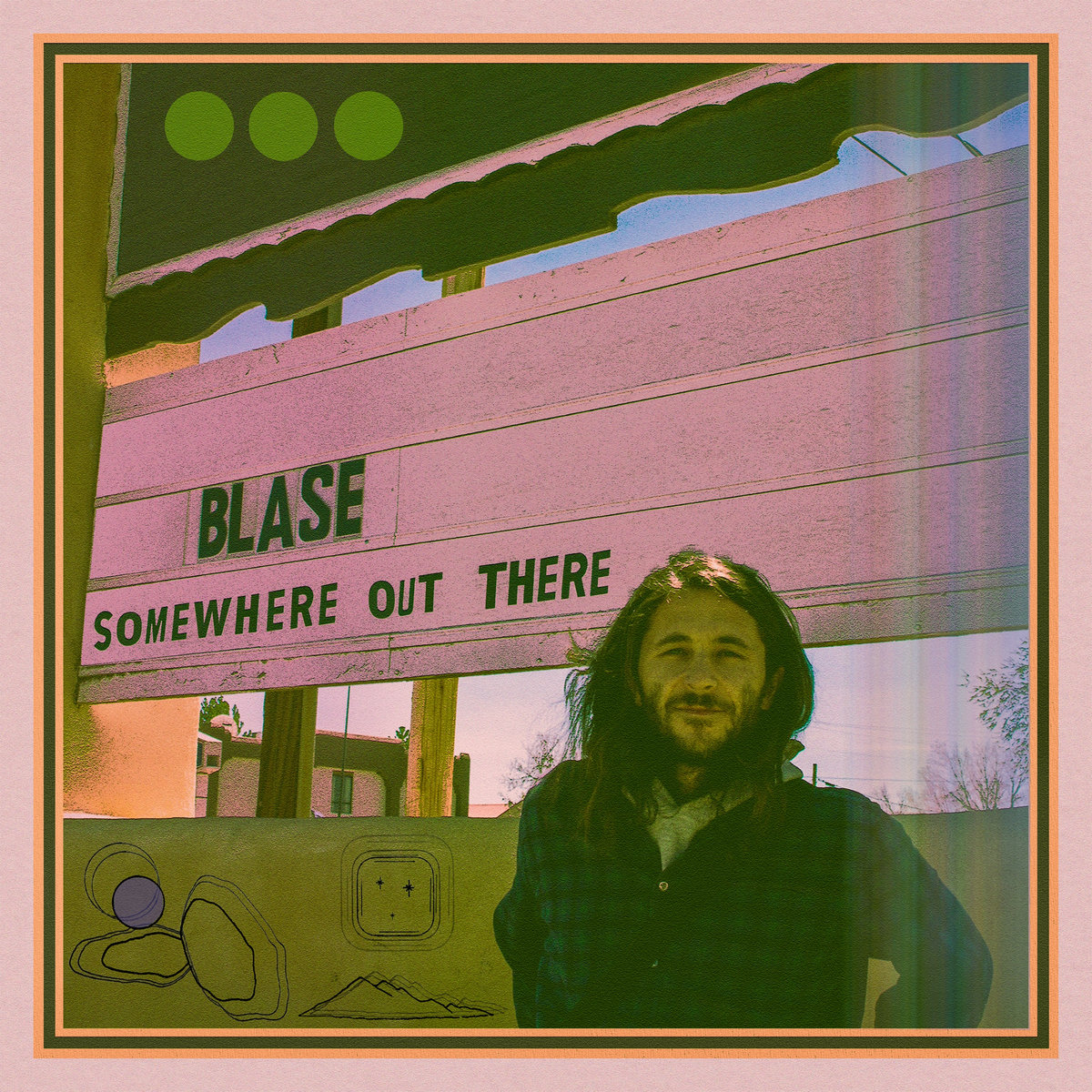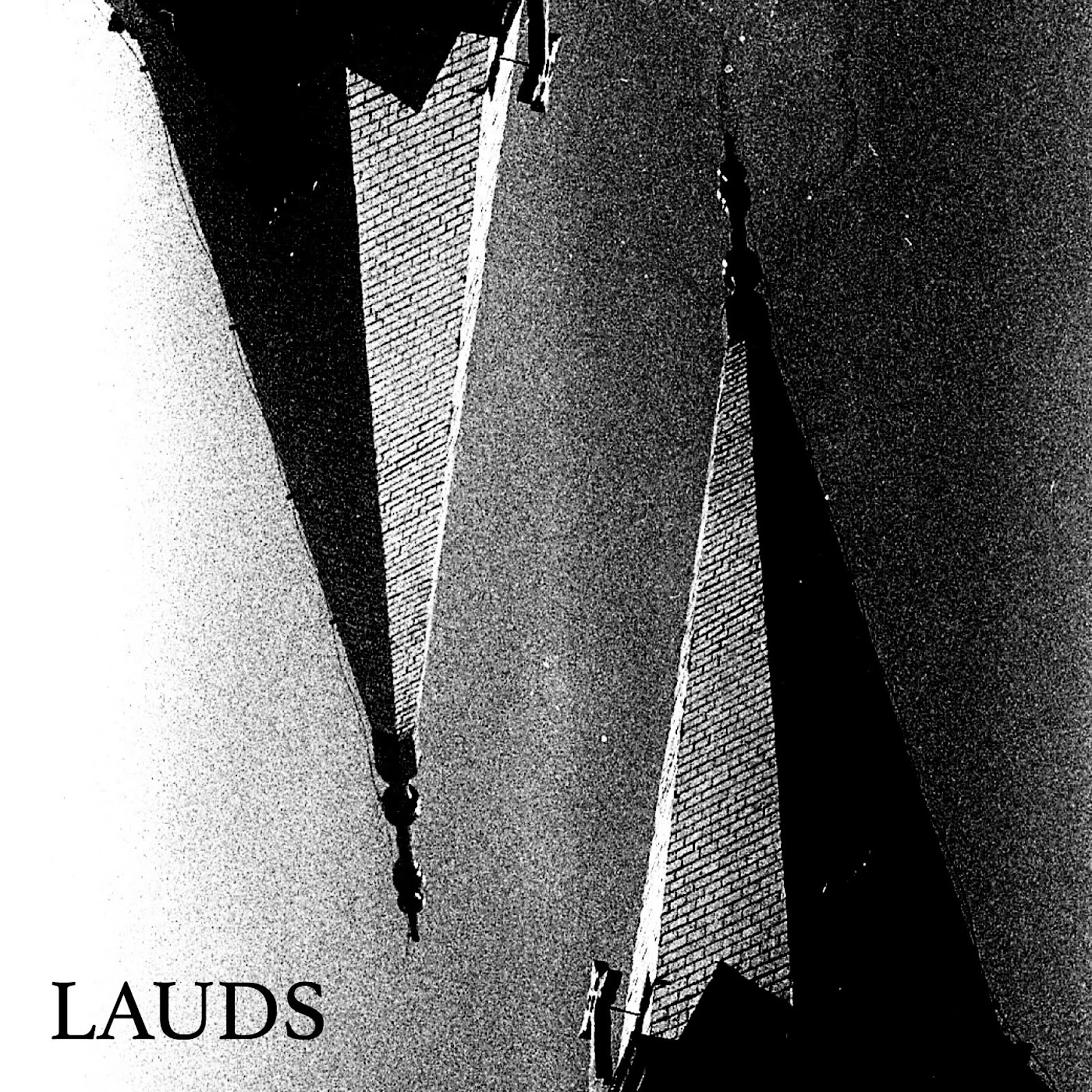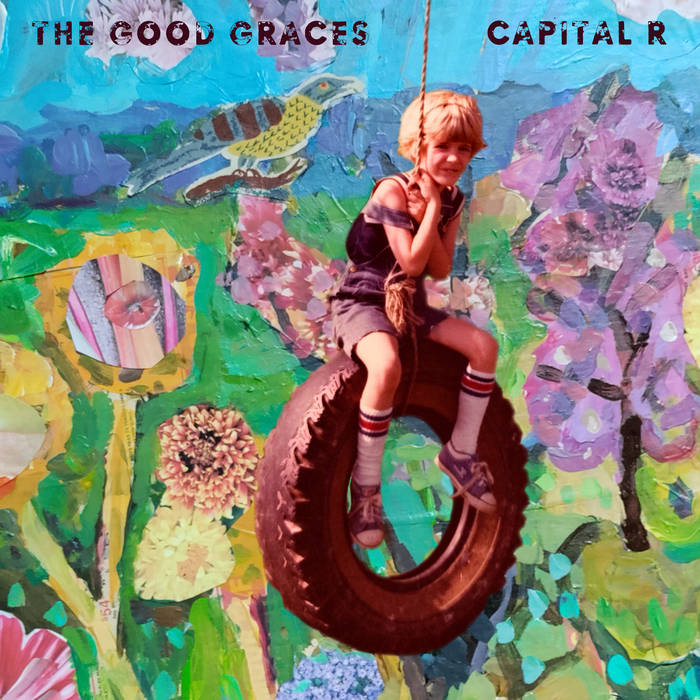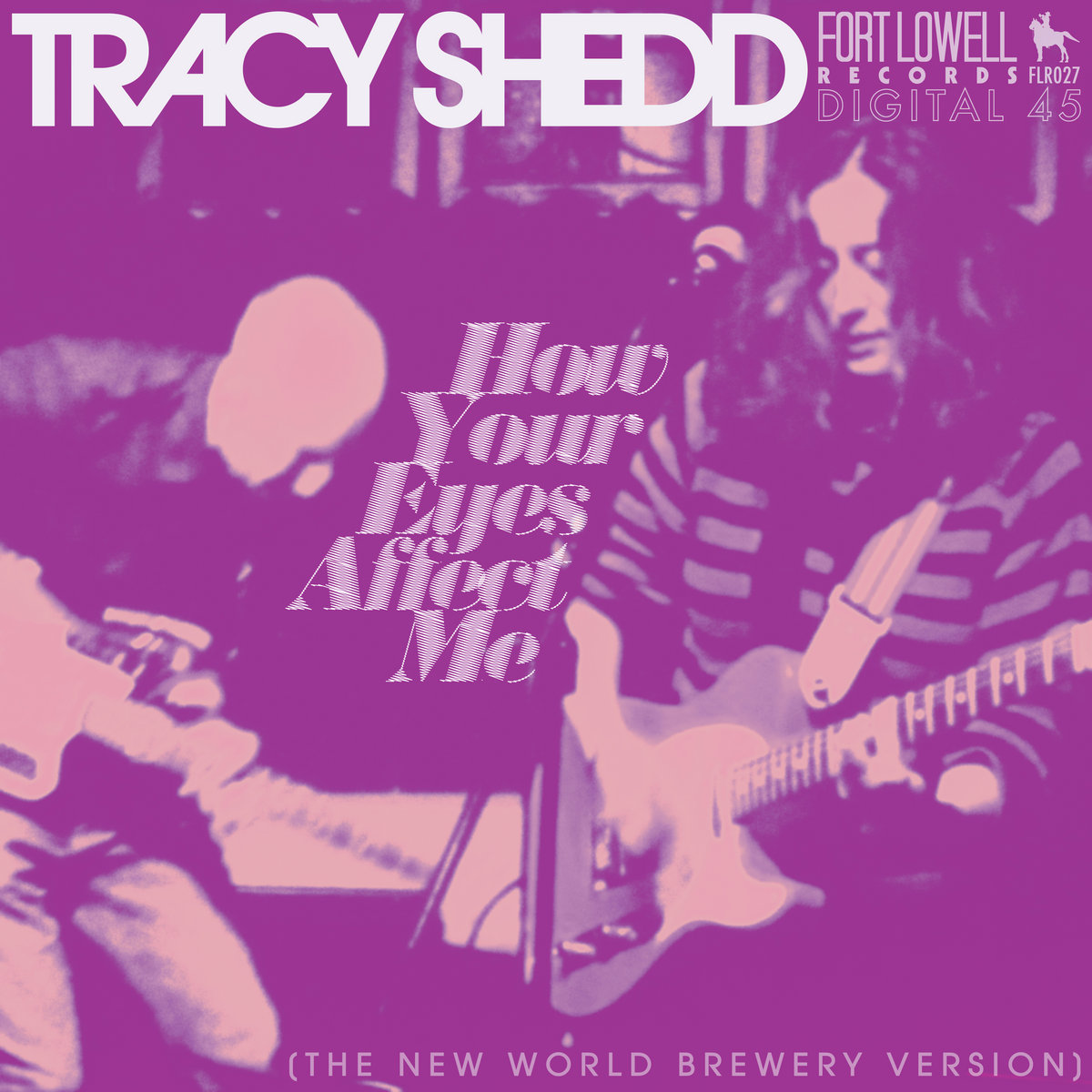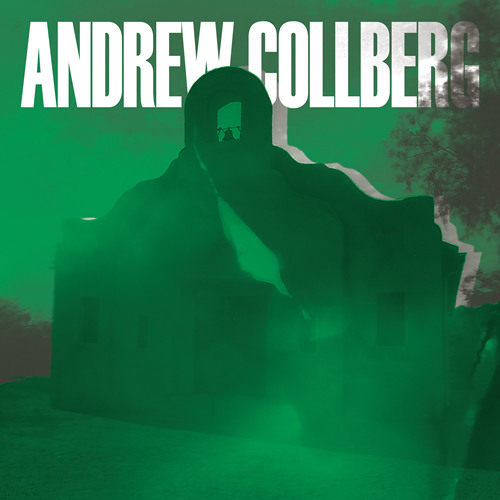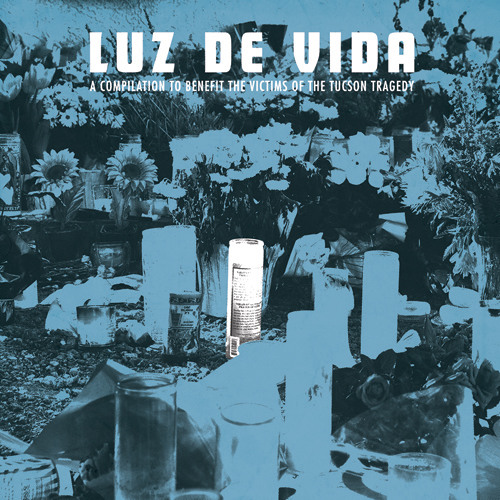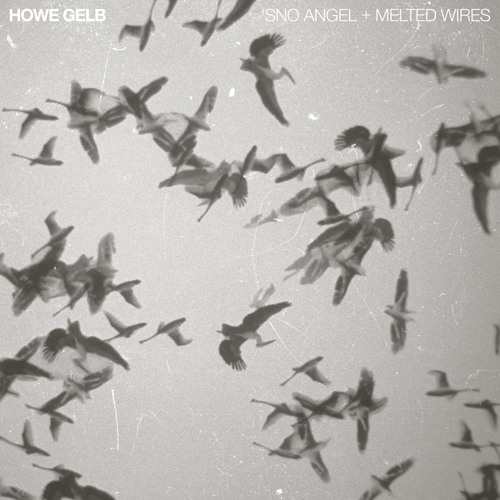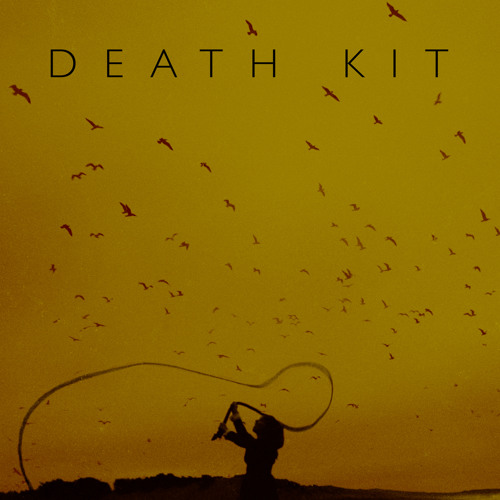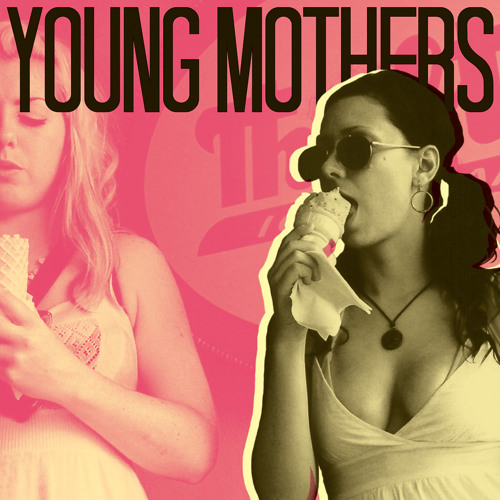EVENT CALENDAR
Thursday, October 31, 2024
James Tritten: Building Community Through Music | CreativeMornings, Wilmington
CreativeMornings is a free monthly breakfast lecture series designed for creative communities across the world. James Tritten of Fort Lowell Records was asked to speak on the topic of 'Reflection' for the inaugural event of the Wilmington, North Carolina local chapter that took place on Friday, September 27th at Thalian Hall.
Wednesday, October 30, 2024
National group to set up 'DJs at the Polls' in Wilmington to entertain, drive turnout
 |
| Lingam James (AKA: Infinite Spins) |
[Repost from StarNews; by John Staton, October 25, 2024]
If you plan on voting in the Wilmington area Nov. 5, casting your ballot might come with a sweet soundtrack.
DJs at the Polls, a national, non-partisan get-out-the-vote group, said it will have paid, professional DJs spinning tunes outside of about 85 polling places in New Hanover, Brunswick and Pender counties on Election Day.
Chris Suggs, a state project manager in North Carolina for DJs at the Polls, said the group plans to have DJs at 1,365 voting sites around the state.
It will be the group's first time placing DJs at polling sites in the Wilmington area. Suggs said DJs at the Polls ran a "pilot project" in North Carolina in 2022 and 2023, but that "the level of coordination is definitely new this year. This is the first year we've reached this level of engagement."
The idea, Suggs said, "is to make election day a fun and enjoyable event," thereby increasing voter participation, which is the group's primary goal.
"We don't care how people vote," Suggs said. "We just want them to get out and vote."
As for the polling sites where DJs at the Polls will be set up, "Some are random," Suggs said, while other are picked because the precincts have high numbers of voters the group targets. Suggs said these include young voters, Black and brown communities, and what Suggs called "low-propensity voters" who vote sometimes but not always.
Suggs said some voters in the Wilmington area will be getting postcards letting them know a DJ will be at their polling site.
According to the DJs at the Polls website, the group's founder, Anton Moore of Philadelphia, started placing DJs at polling locations throughout Pennsylvania in 2008. Moore "helped design and implement DJs 4 Obama" in 2012, and later started DJs at the Polls as a non-partisan group.
The group's website said it "was founded on the belief that voting is something to be celebrated. It was expanded on evidence that having DJs play polling places measurably increases voter turnout."
The group cites a "2022 randomized control trial in Philadelphia at polling sites where our DJs performed." At those sites, "voter turnout increased 3%" over previous years. DJs at the Polls said it targets "densely populated urban areas with large numbers of underrepresented voters."
Nancy Friedman, deputy director of DJs at the Polls, said the group will have DJs outside some seven dozen polling places in New Hanover, Brunswick and Pender counties, including the Career Readiness Academy at Mosely PLC in Wilmington, Lincoln Elementary School in Leland, and North Topsail Elementary School in Hampstead.
A full list of participating DJs in the Wilmington area wasn't immediately provided to the StarNews.
Friedman said "we haven't yet completed the matching process of DJs to locations, but we will have all of that completed by the end of the week."
Wilmington DJ James Tritten of Fort Lowell Records said he will be spinning on Election Day, though he said he hasn't yet been told where.
Another Wilmington DJ you might see at the polls is Lingam James, who DJs under the handle Infinite Spins. You can catch him spinning vinyl every Wednesday evening at Mad Mole Brewing off Oleander Drive as well as at other locations, including Satellite, Palate, and various spots in the Cargo District.
[Lingam] James said that DJs at the Polls reached out to him about participating, and that it was something he wanted to do because "it would open me up to another audience, and hopefully improve the mood" at the polls, he said. "Voting is something we're tasked with as Americans, so I'm glad I can do my part to hopefully make it a more pleasant experience."
[Lingam] James said he already cast his vote early, and that "it was a little tense in line. This will definitely help cut the tension."
If you see Infinite Spins at your polling place, he said you can expect to hear "a lot of funk, soul, disco, jazz, hip-hop, just some upbeat stuff that anyone can chill to." He said he also imports a lot of rare vinyl records into his digital set-up, and looks forward to playing those as well.
According to DJs at the Polls, DJs are paid $500 per four-hour set. Sites will host between one and three four-hour DJ sets, with some DJs performing multiple sets.
Suggs said "we are very intentional about the DJs we recruit." The group targets professional DJs who gig regularly. Some might work on local radio while others are what Suggs called "celebrity DJs."
The DJs "know their communities best," Suggs said, including what kind of music their communities want to hear. The group just asks that they play "family friendly" music that is "respectful" to the polling place, which might be at a school or church.
Suggs said DJs at the Polls is funded by many different private donors and foundations, including Focus for Democracy, a nonprofit, non-partisan civic engagement group that its website says is "dedicated to empowering donors to make the most impactful contributions possible to strengthen democracy."
So far, the group will be placing DJs in "13 states and counting," Suggs said.
Some states, like Georgia, have passed laws restricting activity near polling sites. In that state, for example, it's illegal to even give food or water to people waiting in line to vote.
In North Carolina, Suggs said, "we've been very well-received" by everyone from politicians to community organizers and "we haven't run into any issues at all" with local boards of elections.
"They realize this is a non-partisan activity," he said. "In my work of doing this, there are always critics, but we've not run into any opposition that would make us stop what we're doing."
DJs at the Polls, a national, non-partisan get-out-the-vote group, said it will have paid, professional DJs spinning tunes outside of about 85 polling places in New Hanover, Brunswick and Pender counties on Election Day.
Chris Suggs, a state project manager in North Carolina for DJs at the Polls, said the group plans to have DJs at 1,365 voting sites around the state.
It will be the group's first time placing DJs at polling sites in the Wilmington area. Suggs said DJs at the Polls ran a "pilot project" in North Carolina in 2022 and 2023, but that "the level of coordination is definitely new this year. This is the first year we've reached this level of engagement."
The idea, Suggs said, "is to make election day a fun and enjoyable event," thereby increasing voter participation, which is the group's primary goal.
"We don't care how people vote," Suggs said. "We just want them to get out and vote."
As for the polling sites where DJs at the Polls will be set up, "Some are random," Suggs said, while other are picked because the precincts have high numbers of voters the group targets. Suggs said these include young voters, Black and brown communities, and what Suggs called "low-propensity voters" who vote sometimes but not always.
Suggs said some voters in the Wilmington area will be getting postcards letting them know a DJ will be at their polling site.
According to the DJs at the Polls website, the group's founder, Anton Moore of Philadelphia, started placing DJs at polling locations throughout Pennsylvania in 2008. Moore "helped design and implement DJs 4 Obama" in 2012, and later started DJs at the Polls as a non-partisan group.
The group's website said it "was founded on the belief that voting is something to be celebrated. It was expanded on evidence that having DJs play polling places measurably increases voter turnout."
The group cites a "2022 randomized control trial in Philadelphia at polling sites where our DJs performed." At those sites, "voter turnout increased 3%" over previous years. DJs at the Polls said it targets "densely populated urban areas with large numbers of underrepresented voters."
Nancy Friedman, deputy director of DJs at the Polls, said the group will have DJs outside some seven dozen polling places in New Hanover, Brunswick and Pender counties, including the Career Readiness Academy at Mosely PLC in Wilmington, Lincoln Elementary School in Leland, and North Topsail Elementary School in Hampstead.
A full list of participating DJs in the Wilmington area wasn't immediately provided to the StarNews.
Friedman said "we haven't yet completed the matching process of DJs to locations, but we will have all of that completed by the end of the week."
Wilmington DJ James Tritten of Fort Lowell Records said he will be spinning on Election Day, though he said he hasn't yet been told where.
Another Wilmington DJ you might see at the polls is Lingam James, who DJs under the handle Infinite Spins. You can catch him spinning vinyl every Wednesday evening at Mad Mole Brewing off Oleander Drive as well as at other locations, including Satellite, Palate, and various spots in the Cargo District.
[Lingam] James said that DJs at the Polls reached out to him about participating, and that it was something he wanted to do because "it would open me up to another audience, and hopefully improve the mood" at the polls, he said. "Voting is something we're tasked with as Americans, so I'm glad I can do my part to hopefully make it a more pleasant experience."
[Lingam] James said he already cast his vote early, and that "it was a little tense in line. This will definitely help cut the tension."
If you see Infinite Spins at your polling place, he said you can expect to hear "a lot of funk, soul, disco, jazz, hip-hop, just some upbeat stuff that anyone can chill to." He said he also imports a lot of rare vinyl records into his digital set-up, and looks forward to playing those as well.
According to DJs at the Polls, DJs are paid $500 per four-hour set. Sites will host between one and three four-hour DJ sets, with some DJs performing multiple sets.
Suggs said "we are very intentional about the DJs we recruit." The group targets professional DJs who gig regularly. Some might work on local radio while others are what Suggs called "celebrity DJs."
The DJs "know their communities best," Suggs said, including what kind of music their communities want to hear. The group just asks that they play "family friendly" music that is "respectful" to the polling place, which might be at a school or church.
Suggs said DJs at the Polls is funded by many different private donors and foundations, including Focus for Democracy, a nonprofit, non-partisan civic engagement group that its website says is "dedicated to empowering donors to make the most impactful contributions possible to strengthen democracy."
So far, the group will be placing DJs in "13 states and counting," Suggs said.
Some states, like Georgia, have passed laws restricting activity near polling sites. In that state, for example, it's illegal to even give food or water to people waiting in line to vote.
In North Carolina, Suggs said, "we've been very well-received" by everyone from politicians to community organizers and "we haven't run into any issues at all" with local boards of elections.
"They realize this is a non-partisan activity," he said. "In my work of doing this, there are always critics, but we've not run into any opposition that would make us stop what we're doing."
Tuesday, October 29, 2024
OUT NOW: JPW & Dad Weed 'Two Against Nurture' [Digital EP]
The dark is arriving earlier each passing evening. The veil between the spirit world and the land of the living grows thin. Into the glooming emerge Phoenix songwriters Zachary “Dad Weed” Toporek and Jason P. Woodbury, aka JPW, noted podcaster, liner notes author, and songwriter, bearing a bag of autumnal psych pop. Recorded in Toporek’s backyard studio between 2021-2024, these three tracks showcase the birth of a songwriting partnership between these longtime friends and collaborators. Operating like an ersatz Becker and Fagan, handling singing, writing, arranging, and production in a 50/50 split, these songs indulge their taste for ragged power pop, chiming folk rock, and even semi-improvised jams. Opener “Everybody’s Talkin’ (Again)” pairs suburban Arizona ennui with “summer of ‘99” alt-pop. Driven by Woodbury’s muted bass rumble and Zach Toporek’s exalted breakbeats, the song finds the duo abstracting and stretching out childhood memories, reflecting on the often occulted logic that drives the process of belief and self propulsion. Drawing from early Halloween memories and the spirit of magical possibility that marks the shift from summer to fall, the song’s earnest message urges living in the here and now: “Everybody’s talking about moving away/you think you’ll be sticking around.” ”When I Get Lonesome” continues the thread of ‘90s pop influence, pairing Byrds-inspired jangle pop with scuzzed-out guitars. Closing number “Big Wave” is built on a loose, mostly improvised session, which finds Toporek reflecting on climate dread while Woodbury twists a Telecaster into an open tuning and channels his inner Neil Young. Two Against Nurture opens up the vortex and beckons you to enter. Don’t delay.
—
JPW & Dad Weed Two Against Nurture is now available everywhere.
Friday, October 25, 2024
OUT NOW: Red Dwarf Star "Ex-Patriot" [Digital Single]
Red Dwarf Star is Coley Dennis of Maserati, featuring Kellii Scott of Failure on drums. "Ex-Patriot" is their second digital single to be released ahead of their highly anticipated debut album (due out next year), and it is available now everywhere.
For fans of Cloakroom, The Cure, Deftones, Drop Nineteens, Fearless, Flyying Colours, The Fucking Champs, Gleemer, Holy Fawn, Holy Fuck, HUM, Ides of Space, Killing Joke, Loathe, Maserati, Mercury Rev, No Joy, Nothing, Pink Floyd, Quicksand, Shellac, Shiner, Slowdive, Starflyer 59, Swirlies, Trans Am, Wednesday, and Whirr.
Friday, October 18, 2024
OUT NOW: MindsOne & Tink_Musik ft. DJ Iron "Why We Do This" [Digital Single]
MindsOne has been offering their listeners innovative lyrics, heart pounding instrumentals, precise cuts, and intense live shows since 2002. Their music embodies the spirit of independent hip hop culture and pays homage to those boom bap masters and others who came before. MindsOne have consistently delivered powerful and inspirational music over the years, and have continued to perfect their sound with each project.
The second digital single "Why We Do This" with Tink_Musik, featuring DJ Iron, off MindsOne's new double album titled Stages (due out next year) is now available on all music platforms as of today.
Tuesday, October 15, 2024
JPW 'Raw Action On Route'
[Repost from Foxy Digitalis; by Brad Rose]
The Capsule Garden Vol 3.19: September 25, 2024
There’s a call being broadcast from beyond the cosmos, hypnotizing our focus into the deepest reaches of space. Hazy memories snake through inner starfields like a mantra beckoning us to go back to reality. JPW’s voice crackles at the crests of slinking guitar leads, all with a wry smile buried in resonant hollows. Simple rhythms underscore the melancholy as if our hearts beat in unison across different stories in different times. Raw Action On Route sings in space-age shadows, adrift on lackadaisical waves while hanging heavy in the golden gravitational pull of future dreams.
Monday, October 14, 2024
On a mission to inspire, national 'Creative' organization opens Wilmington chapter
[Repost from StarNews; by John Staton, October 12, 2024]
As the outer bands of Hurricane Helene blew through Wilmington on Sept. 27, about 75 people assembled in the ballroom of historic Thalian Hall for what would be the inaugural gathering of national organization Creative Mornings' brand-new Wilmington chapter.
The crowd, which included musicians, actors, visual artists, arts administrators and even a few people who claimed not to have a creative bone in their bodies, was lively despite the stormy weather and the 8:30 a.m. hour, chatting as they enjoyed free coffee and doughnuts, and commenting on each others' answers to a question on a name tag handed out when they arrived: "What advice would you give to your younger self?"
After 30 minutes of socializing and opening remarks by Creative Mornings chapter host Kerry Skiles and Thalian Hall director Shane Fernando, it was time for the main event: A Ted Talk-like presentation by James Tritten of Wilmington label Fort Lowell Records on the topic of "reflection."
"People in creative fields or who are doing creative projects, there's always something you can learn from them," Skiles said during an interview a week or so after Creative Mornings made its Wilmington debut. "It's really about just connecting with people in the community. We want this to reflect what the community needs."
The Creative Mornings motto? "Everyone is creative."
Skiles, a native of Edenton, lived in Wilmington in the early 2000s before moving to Raleigh, where she lived for about two decades before returning to Wilmington a couple of years ago.
During her time in Raleigh she attended monthly Creative Mornings meet-ups for close to a decade, and "every time I left one, I was like, 'I'm so inspired,'" she said.
When she looked for a Wilmington chapter of Creative Mornings and found there wasn't one, she decided to start her own. Founded in Brooklyn in 2008, Creative Mornings now boasts some 238 chapters in 69 countries. According to its website, about 70,000 people attend a Creative Mornings event worldwide each month.
Events are typically held on the last Friday morning of the month, with all chapters hosting a speaker who expounds on a common theme. In September, it was "reflection."
Aside from a minor technical glitch that cropped up when slides she had prepared didn't project properly, the inaugural event seemed to go swimmingly.
"It became bigger than we expected," Skiles said, "And that was just from word of mouth."
September's speaker, James Tritten of Fort Lowell Records, told the story of how the label he runs with wife, the singer Tracy Shedd, started in Tuscon, Arizona, and responded to a tragic shooting there in 2011 by trying to put positive energy back into the community via a compilation album of local bands that raised money for anti-violence causes.
The label has released 76 albums since its founding 2009, the majority of them since Tritten and Shedd moved to Wilmington in 2018. In 2020, inspired by the George Floyd/Black Lives Matter protests, Fort Lowell released a compilation album of Wilmington bands called "GROW" that has funded scholarships for a half-dozen students through the Wilmington chapter of the NAACP.
That project, Tritten said, "helped us realize the beauty of what was here," and he also talked about the label's "This Water Is Life" series of albums that pairs Wilmington indie rockers with local hip-hop artists to raise money for environmental causes.
"We took it as an opportunity to share the story of Fort Lowell. To reflect back, but also creating this idea of, 'I just want to shed light on the things around me,'" Tritten said. "I went at it wanting to ensure that there was an opportunity for inspiration to be had."
In talking with people after his talk and "having people tell me, 'That really was inspiring,' I definitely left feeling good," Tritten said.
When Skiles first asked him to speak at Creative Mornings, Tritten said, "My first question was, 'Where's the money?' If anyone was making money off this, I was going to have a problem with it. I quickly recognized Kerry is doing exactly what I'm doing, which is trying to shed light on our peers and our community."
After talking with her, he said, "I realized, I have to be involved with this."
Skiles said that Creative Mornings meet-ups are required by the national organization to be free, with volunteer labor and meeting space, food and coffee all donated.
"That's kind of the beauty of it," Skiles said. "Chapters aren't run as profit-making machines, and there's not this underbelly of having to raise money."
The idea is for the meet-up to be in a new place each month, at least at first, though Skiles said it might evolve into having "a go-to place sprinkled in with other locations."
Wilmington's second Creative Mornings meet-up will be 8:30 a.m. Friday, Oct. 25 at the Cameron Art Museum and feature filmmaker Christopher Everett, director of the 1898 documentary "Wilmington on Fire" and co-founder of Wilmington's Three Chambers Festival, which has a combined focus on film, hip-hop and martial arts.
"I've always been a fan of Creative Mornings. It's like Ted Talk for creatives," Everett said. "I plan on talking about creating a vision for a creative future. This story is important to me."
Skiles said that, as speakers, Tritten and Everett "appealed to me in different ways. They had an idea and they wanted to bring it to life, and that's just inspiring."
The crowd, which included musicians, actors, visual artists, arts administrators and even a few people who claimed not to have a creative bone in their bodies, was lively despite the stormy weather and the 8:30 a.m. hour, chatting as they enjoyed free coffee and doughnuts, and commenting on each others' answers to a question on a name tag handed out when they arrived: "What advice would you give to your younger self?"
After 30 minutes of socializing and opening remarks by Creative Mornings chapter host Kerry Skiles and Thalian Hall director Shane Fernando, it was time for the main event: A Ted Talk-like presentation by James Tritten of Wilmington label Fort Lowell Records on the topic of "reflection."
"People in creative fields or who are doing creative projects, there's always something you can learn from them," Skiles said during an interview a week or so after Creative Mornings made its Wilmington debut. "It's really about just connecting with people in the community. We want this to reflect what the community needs."
The Creative Mornings motto? "Everyone is creative."
Skiles, a native of Edenton, lived in Wilmington in the early 2000s before moving to Raleigh, where she lived for about two decades before returning to Wilmington a couple of years ago.
During her time in Raleigh she attended monthly Creative Mornings meet-ups for close to a decade, and "every time I left one, I was like, 'I'm so inspired,'" she said.
When she looked for a Wilmington chapter of Creative Mornings and found there wasn't one, she decided to start her own. Founded in Brooklyn in 2008, Creative Mornings now boasts some 238 chapters in 69 countries. According to its website, about 70,000 people attend a Creative Mornings event worldwide each month.
Events are typically held on the last Friday morning of the month, with all chapters hosting a speaker who expounds on a common theme. In September, it was "reflection."
Aside from a minor technical glitch that cropped up when slides she had prepared didn't project properly, the inaugural event seemed to go swimmingly.
"It became bigger than we expected," Skiles said, "And that was just from word of mouth."
September's speaker, James Tritten of Fort Lowell Records, told the story of how the label he runs with wife, the singer Tracy Shedd, started in Tuscon, Arizona, and responded to a tragic shooting there in 2011 by trying to put positive energy back into the community via a compilation album of local bands that raised money for anti-violence causes.
The label has released 76 albums since its founding 2009, the majority of them since Tritten and Shedd moved to Wilmington in 2018. In 2020, inspired by the George Floyd/Black Lives Matter protests, Fort Lowell released a compilation album of Wilmington bands called "GROW" that has funded scholarships for a half-dozen students through the Wilmington chapter of the NAACP.
That project, Tritten said, "helped us realize the beauty of what was here," and he also talked about the label's "This Water Is Life" series of albums that pairs Wilmington indie rockers with local hip-hop artists to raise money for environmental causes.
"We took it as an opportunity to share the story of Fort Lowell. To reflect back, but also creating this idea of, 'I just want to shed light on the things around me,'" Tritten said. "I went at it wanting to ensure that there was an opportunity for inspiration to be had."
In talking with people after his talk and "having people tell me, 'That really was inspiring,' I definitely left feeling good," Tritten said.
When Skiles first asked him to speak at Creative Mornings, Tritten said, "My first question was, 'Where's the money?' If anyone was making money off this, I was going to have a problem with it. I quickly recognized Kerry is doing exactly what I'm doing, which is trying to shed light on our peers and our community."
After talking with her, he said, "I realized, I have to be involved with this."
Skiles said that Creative Mornings meet-ups are required by the national organization to be free, with volunteer labor and meeting space, food and coffee all donated.
"That's kind of the beauty of it," Skiles said. "Chapters aren't run as profit-making machines, and there's not this underbelly of having to raise money."
The idea is for the meet-up to be in a new place each month, at least at first, though Skiles said it might evolve into having "a go-to place sprinkled in with other locations."
Wilmington's second Creative Mornings meet-up will be 8:30 a.m. Friday, Oct. 25 at the Cameron Art Museum and feature filmmaker Christopher Everett, director of the 1898 documentary "Wilmington on Fire" and co-founder of Wilmington's Three Chambers Festival, which has a combined focus on film, hip-hop and martial arts.
"I've always been a fan of Creative Mornings. It's like Ted Talk for creatives," Everett said. "I plan on talking about creating a vision for a creative future. This story is important to me."
Skiles said that, as speakers, Tritten and Everett "appealed to me in different ways. They had an idea and they wanted to bring it to life, and that's just inspiring."
Friday, October 11, 2024
OUT NOW: Al Foul 'Come Back a Dog' [Final LP]
When Al Foul left this world in the twilight hours of May 25, 2022, he roared like a lion. His arms were stick-straight, precisely parallel to his body, fists clenched and holding a posture not unlike a daredevil diver heading feet first into some sort of otherworldly, aquatic abyss.
It was a frightening, beautiful, and fully fitting exit for a man and musician who had already been described as a living legend long before he was diagnosed with the laryngeal cancer that took his life.
Over his 50 years on this mortal coil, Alan Lewis Curtis overcame a bleakly violent, impoverished childhood in Hyde Park, Boston and went on to live a richly adventurous, extraordinary life, primarily under his stage name, Al Foul.
After forays into punk rock, mostly with his Tucson-based band Al Foul and The Shakes, he settled into a solo configuration, occasionally augmented with various players from Tucson and always with his reputation for charming showmanship and ribald humor intact. The joyous mayhem of his delivery made his performances memorable and eventually underground iconic.
He toured Europe for decades and gained a particularly devoted following in France and Germany where his shows took on a more Lynchian quality with the input of his touring partner, DJ Laurent Allinger ( a.k.a. “The French Tourist”), who added surreal samples and textures that echoed Foul’s chosen Southwest home. Whether he was playing biker festivals in tiny villages or sharing larger stages with King Khan and The Shrines or The BellRays, Al was always utterly unforgettable.
During the pandemic, Foul was diagnosed with laryngeal cancer and was cared for by his wife, KXCI DJ Hannah Levin, until his death in 2022. Al’s battle and their love story was chronicled by local PBS station AZPM and in 2024 the resulting documentary “Al & Hannah” won the Edward R. Murrow award for Best News Documentary.
Come Back a Dog is Al Foul's final album, a combination of originals and covers that were fan favorite staples of his live sets. From the starkly prophetic title track and his gleeful take on the Muscle Shoals’ staple “Six Days on the Road” to the neo-noir spin on the American traditional murder ballad “Frankie & Johnny” and the haunting atmospherics of “Darker Shade of Blue”, Foul sketches a gritty-yet-compassionate portrait of raw Americana that could sit comfortably on a shelf between a Raymond Carver anthology and a Tom Waits’ boxed set.
Al Foul Come Back a Dog is out now and available everywhere as of today.
LISTEN TO FULL ALBUM | VINYL SOLD OUT
Sunday, October 6, 2024
Is the protest anthem a lost art, or has the sound of revolution switched political sides?
[Repost from KJZZ 91.5FM Phoenix; by Sam Dingman, September 27, 2024]
As a summer of political chaos draws to a close, the wars and policy debates that have prompted violence and upheaval remain. Some pundits are saying it feels like the late '60s all over again. But when it comes to music, things don't quite sound the same.
Jason Woodbury, musician and podcaster on Aquarium Drunkard Transmissions, has been documenting the fluctuations of the music industry for years on his podcast and he joined The Show to talk about how things have changed since the golden age of the protest anthem.
Full conversation
JASON WOODBURY: The late ‘60s, early ‘’70s really are the time when a number of factors, the civil rights movement, the anti-war movement produced a sort of cultural consciousness that crossed over into the pop realm.
You've got songs like Creedence Clearwater Revival's “Fortunate Son,” an anti-war song that hit number 14 on the Billboard hot 100. Also in 1969, John Lennon's “Give Peace a chance.” Pretty blatant outright lyric there that also hit number 14. Not only is this stuff really conveying a, a point of view and a message, but it's also achieving mainstream success.
SAM DINGMAN: I think one of the interesting phenomena about the success of these songs is that it makes us look back at that time, kind of through the lens of the popularity of the songs, if that makes sense. Like, because of the widespread resonance of those songs, it becomes very easy to look back at that time and think like, well, everybody hated the Vietnam War, when of course, the reality is that those things were the subject of very intense debate.
WOODBURY: Yeah, I almost feel like the pop culture element of it allows for a sort of retrofitting, right? Like, oh, yeah, everybody must have been on board because I mean, listen to how, how good this song is. It's easier to paint a slightly rosier picture maybe if you're just going by the sort of artistic breakouts of that time.
DINGMAN: Yeah. Well, and I'm curious to know what you think about this idea, too, that maybe another reason that it's easier to paint with a bit of a broad brush in terms of memory using these songs is that they were by and large channeling a kind of sentiment rather than a specific message against one particular party.
You know, obviously there was probably, you know, some implicit messaging against say the Nixon administration, but it's not like, it, it, it seemed like it was more about channeling a general spirit amongst the people rather than taking a firm stance on one side of the aisle or the other.
WOODBURY: Yeah, that's actually really interesting to think about. You know, I think about the, the Crosby, Stills, Nash and Young song “Ohio,” which was written about the Kent State massacre. And it specifically says, you know, “Tin soldiers and Nixon's coming.” But I think it's that next line that almost speaks to what you're saying. You know, he says, “we're finally on our own.” That speaks a lot more to the spirit of a thing and, and sort of a general feeling than actually saying, you know, you can only listen to this song if you're against the Vietnam War.
In the ‘80s and ‘90s, you get into stuff that actually probably was far more aligned with the actual very, very radical stuff from that counterculture, stuff like Public Enemy, NWA. These were artists that were speaking about very bleak realities and often accompanying them with really controversial statements, you know. And that remains popular music. When you think about news anchors freaking out over NWA lyrics, it's like a reminder that like, that's the mainstream, paying attention to this, this stuff.
And I think that that continues on for a while, you know, in the early 2000s, you also had stuff like Green Day with “American Idiot” or the Dixie Chicks, now just the Chicks, but at the time, the Dixie Chicks, who spoke out against the war in Iraq and really faced like a very, very intense backlash from the Nashville establishment. And I think that after that point, say in the early 2000s, you really do start to see the kind popular protest song, not completely go away but certainly lessen in, in frequency.
DINGMAN: Yeah. But I think it is really interesting that, that point you're making about the Chicks, I mean, obviously the Chicks still have their fans, but at the time that they made that statement, they were one of the, the biggest acts in popular music, right?
WOODBURY: That's right. And I mean, I think that when you even think about just sort of the strange way that political ideology ebbs and flows in relation to culture, you look at the, the Chicks, who were taking this stance and were speaking out against the George Bush administration and people like Dick Cheney. You think about that in context of 2024 and you've got like Dick Cheney saying that you should vote for Kamala Harris, you know, the quote unquote progressive person on the ticket.
And I think that speaks to just how weird and sort of complicated these things have become and how it's become increasingly difficult to sort of take a coherent stance in certain ways. And, and to some degree or another, most protest music requires that kind of specificity that's become maybe a little bit more elusive in a time where people are like, well, hang on. What, what exactly, where do I align, you know, is there an anti-war, you know, candidate or whatever things like that?
When you look at some of the stuff that has broken through in more recent time, there's a MAGA rapper, Forgiato Blow, who managed to score a really big hit with his song “Boycott Target.” That Oliver Anthony's super viral “Rich Men North of Richmond,” which debuted at number one.
Like now you might actually have more of a chance of scoring like a protest hit if you're sort of saying something very different than what you might hear more progressive artists saying. And those are both examples I think that sort of show how this has changed quite a bit.
DINGMAN: Yeah. Well, it certainly feels like we've come a long way from “Give Peace a Chance.”
WOODBURY: I mean, I like that one still. I, I'm a, I'm a, I'm a John and Yoko stan. So plenty of protest music in their cannon to to, to return to.
Friday, October 4, 2024
OUT NOW: Al Foul "Memphis" [Digital Single]
The third single "Memphis" from Al Foul's (1971-2022) final album Come Back a Dog — a combination of originals and covers that sketch a gritty-yet-compassionate portrait of raw Americana — is available now on all digital music platforms.
For fans of Hasil Adkins, Bloodshot Bill, Johnny Burnette, Johnny Cash, Raymond Carver, Nick Cave, Eddie Cochran, The Cramps, Dave Dudley, Elvis, Charlie Feathers, Howe Gelb, Earl Green, PJ Harvey, Richard Hawley, Trini Lopez, Carl Perkins, Reverend Horton Heat, Dex Romweber, Nick Shoulders, Jon Spencer, Mark Sultan, Kip Tyler, Gene Vincent, Tom Waits, Link Wray.
Subscribe to:
Comments (Atom)















